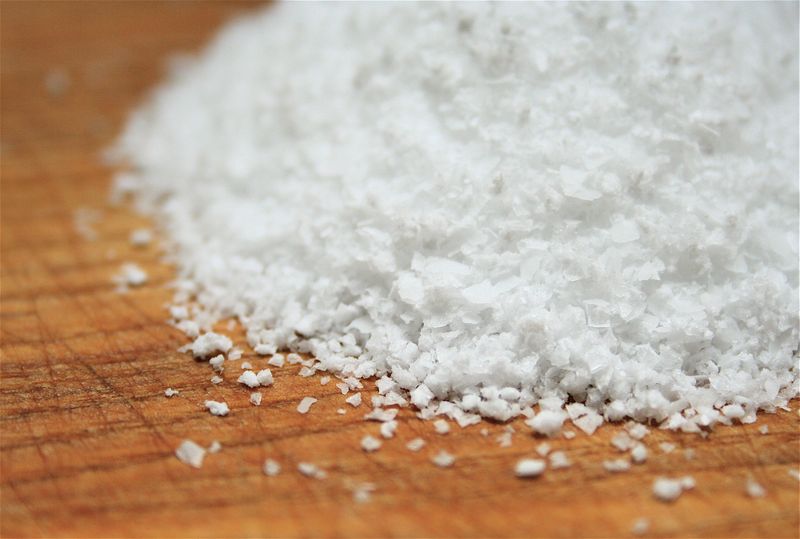The other day I posted a short article regarding the differences between Sea Salt and regular Table Salt, but I didn’t mention Kosher salt. And why didn’t I mention kosher salt? There’s a deep physiological reason behind this, so think deeply. Have you figured it out yet? The truth is, I just didn’t feel like writing any more about salt, so I stopped after sea salt and table salt. But, one of my co-workers caught me on it… so now here’s a post dedicated especially to my coworker (you know who you are). So, what is kosher salt and what is it used for?
 (Photo: “Kosher Salt” by stlbites.com)
(Photo: “Kosher Salt” by stlbites.com)
I like to think that kosher salt belongs somewhere in between sea salt and table salt because it’s an excellent salt to both cook and cure with. Kosher salt has larger crystals which make drawing out a meat’s moisture and blood easier. (This also is the reason it’s called kosher salt, as this is part of the process to make meats kosher.)
Because kosher salt has a larger surface area that absorbs the moisture more readily than regular table salt and because of it’s subtler flavor, it might take a few trial and error dishes to learn how to use it instead of table salt. But once you start cooking with it, chances are you’ll learn to love it. And, by the way, this is a great salt to top homemade pretzels with.
As a quick note, kosher salt doesn’t contain iodine, but no fears, there’s plenty of iodine in other foods you consume.
Read about sea salt and table salt by clicking here.
Thank you – I had always wondered why on earth it’s called Kosher salt. Now I know! How much do you tend to use when compared to regular salt? Double?
I haven’t really paid a lot of attention to how much Kosher salt I use vs. regular salt in my regular cooking, as I tend to just season to taste. A part of my brain is telling me though, that I tend to use a smidgen less Kosher salt than regular salt.
I thought kosher salt was for tenderizing meat. Is that so ?
Yes, that’s true. It takes a while to do it though. Liberally salt your meat and let it sit out for at least an hour. The moisture will come out of the meat, dissolve some of the salt, and then get pulled back in (equilibrium). The thicker the meat, the more salt and time it takes.
You can also use a brine to tenderize your meats.